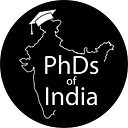Member-only story
Little cells, big puzzle: CAR T-cell therapy’s journey from bench to bedside
The success of India’s first Chimeric Antigen Receptor (CAR) T-cell therapy is the newest feather in developing an indigenous personalized treatment for cancer. Researchers at the Indian Institute of Technology, Bombay (IITB) developed this cost-effective way to treat cancer by isolating T cells, a subset of immune cells from the patients, which were modified through genetic engineering and readministered into the patients.
CAR T-cell therapy is one of the successful therapeutic approaches being tried and tested worldwide for certain cancer types, particularly the Acute Lymphocytic Leukaemia (ALL). ALL is a type of blood cancer and the most common of all cancer types known in children. It is characterized by the overproduction of lymphocytes, a group of white blood cells. Under normal conditions, the lymphocyte count in children ranges from 3000–9500 per microlitre of blood. However, in cases of ALL, there is a rampant increase in the lymphocytes count resulting in the overall increase of white blood cells. Lymphocytes are of two types — B cells that produce specific antibodies against foreign substances and T cells that identify and elicit specific immune responses against various infectious diseases. A subset of the T cells is specifically dedicated to fight against other toxic cells like cancer cells in the…
